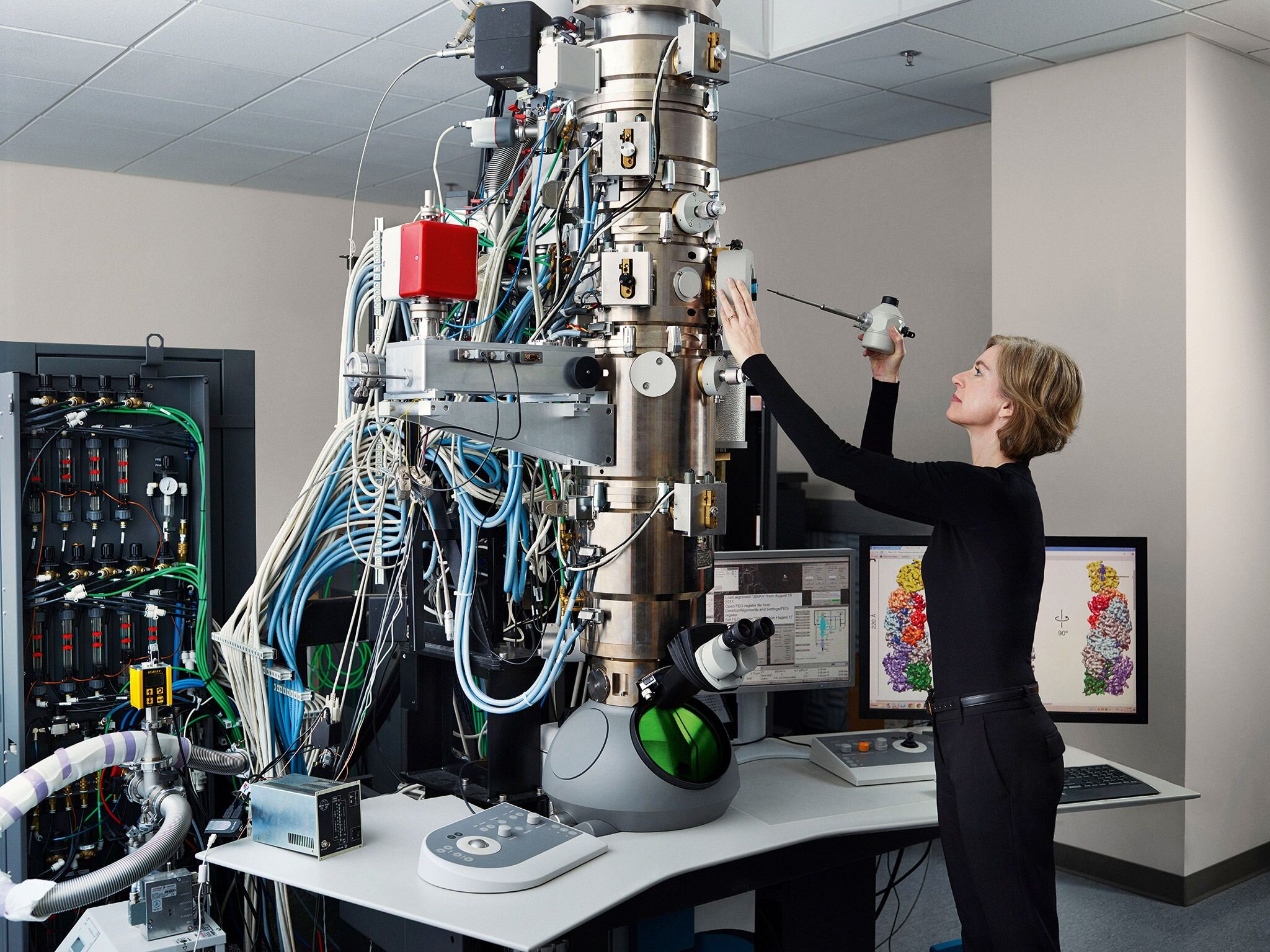AREAS OF KNOWLEDGE:
THE NATURAL SCIENCES
Jennifer Doudna, CRISPR pioneer.
Photo source: How to edit a human: for decades scientists aspired to modify the code of life. Tom Whipple meets Jennifer Doudna, who succeeded. The Economist 1843 Magazine. Tom Whipple, July 3rd 2018.
"It doesn't matter how beautiful your theory is, it doesn't matter how smart you are. If it disagrees with experiment, it's wrong." - Richard Feynman
Class Activities
A key question is what demarcates the natural sciences from the other areas of knowledge?
A good entry point is to recognize science is a dynamic process as well as a vast edifice of interconnected knowledge. Science is rational, coherent and evidence based. TOK students should pause and do some second order thinking on any assumptions made about how the natural world works that enable legions of scientists to test their predictions with replicable, controlled experiments.
Here are some class activities that will enable students to explore the scope of the natural sciences. Students will reflect on their own relationship to science, including whether or not they are doing any real science in their classes. They will also explore to what extent scientists can bring their own creative insights and perspectives to a field where objectivity is paramount. Through the activities students will encounter the distinct methods and tools of science, as well as some of the ethical conundrums confronted by scientists as they strive to observe, analyze and make sense of the natural world.
Is there a scientific method?
Are you doing any real science?
Hypothetico-deductive model
Why trust science?
Nature: an encounter with a real science journal
Getting published in nature
Arcane sentences hastily chosen from nature
Biological language delights
Masters and apprentices
Navigating biological vernacular
Etymological
Esoteric plural forms
Celebrated namesakes
Eccentricities
Thinking critically about biological classification
Superior bipeds
Theory of Ignorance
The pursuit of ignorance
Boundaries of knowledge model
Negative capability
KNOWLEDGE QUESTIONS
The new Theory of Knowledge Guide (2020) provides 385 Knowledge Questions for student exploration. Here are my personal favorites from the natural sciences section.
SCOPE
What knowledge, if any, is likely to always remain beyond the capabilities of science to investigate or verify?
Is prediction the primary purpose of scientific knowledge?
PERSPECTIVE
How does the social context of scientific work affect the methods and findings of science?
Does the precision of the language used in the natural sciences successfully eliminate all ambiguity?
Does competition between scientists help or hinder the production of knowledge?
METHODS AND TOOLS
Is there a single “scientific method”?
What is the role of imagination and intuition in the creation of hypotheses in the natural sciences?
What kinds of explanations do natural scientists offer?
What is the role of inductive and deductive reasoning in scientific inquiry, prediction and explanation?
ETHICS
Is science, or should it be, value-free?
In what ways have developments in science challenged long-held ethical values?
CONNECTING TO THE CORE THEME
How might we, as members of the public, judge whether to accept scientific findings if we do not have detailed scientific knowledge?
Award winning image of stentors (trumpet animalcules) are single-celled freshwater protists.
Photo credit: Dr. Igor Siwanowicz, Howard Hughes Medical Institute’s Janelia Research Campus in Ashburn, Virginia.

